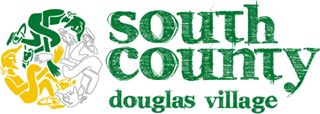We will be running Winter Yoga in the club. Saturday mornings 10-11am with Ghislain Sacred Body Studio/ Starts 14th September/ Charge €8 members and €12 non-members.
To book contact Ghislain 0857350964 or info@sacredbodystudio.com
Benefits of Yoga (General)
Yoga offers a broad range of benefits that cater to both physical and mental well-being. Here’s a breakdown of the key benefits and who can benefit most from practising yoga:
Physical Benefits
- Improved Flexibility: Regular yoga practice helps increase the range of motion in joints and muscles, which can improve flexibility over time.
- Strength Building: Many yoga poses require you to support your own body weight, helping to build muscle strength, particularly in the core, legs, and arms.
- Better Posture: By improving body awareness and alignment, yoga can help correct poor posture, which can reduce back and neck pain.
- Enhanced Balance: Yoga poses, especially standing and balancing postures, improve overall balance and coordination.
- Increased Lung Capacity: Breathing exercises in yoga (pranayama) help increase lung capacity, promoting better oxygenation and breathing efficiency.
- Stress Relief: Yoga lowers cortisol levels, helping to reduce stress and its physical impacts, like high blood pressure.
- Joint Health: Yoga’s low-impact movements lubricate the joints, which can help manage and prevent conditions like arthritis.
- Improved Circulation: Yoga helps improve blood flow, which can lead to better cardiovascular health.
- Enhanced Digestion: Certain poses, like twists, can aid in digestion by massaging internal organs.
- Pain Management: Yoga can alleviate chronic pain conditions, such as lower back pain, by strengthening muscles and improving flexibility.
Mental Benefits
- Stress Reduction: Yoga promotes relaxation and reduces stress through a combination of physical movement, breathing exercises, and meditation.
- Improved Focus and Concentration: Meditation and mindfulness practices in yoga enhance mental clarity and focus.
- Better Sleep: Yoga can help manage insomnia and improve sleep quality by promoting relaxation.
- Emotional Balance: Regular yoga practice can improve mood and emotional resilience by balancing the nervous system.
- Increased Self-Awareness: Yoga encourages self-reflection and mindfulness, which can lead to a deeper understanding of oneself.
Who Benefits Most?
- Older Adults: Yoga is particularly beneficial for older adults as it enhances flexibility, balance, and strength, which can help prevent falls and maintain independence.
- People with Chronic Conditions: Those with conditions like arthritis, hypertension, or chronic pain often find relief through gentle yoga practices.
- Athletes: Athletes use yoga to enhance flexibility, balance, and mental focus, which can improve overall performance and reduce injury risk.
- People with High-Stress Jobs: Yoga is an effective tool for stress management, making it particularly beneficial for people in high-pressure or high-stress professions.
- Pregnant Women: Prenatal yoga helps in maintaining strength, flexibility, and mental calmness during pregnancy, while also preparing the body for childbirth.
- Individuals Seeking Mental Health Support: Yoga offers benefits for those dealing with anxiety, depression, or PTSD by promoting relaxation and emotional balance.
- Students and Professionals: The focus on mindfulness and concentration in yoga can help students and professionals manage stress and improve productivity.
Overall, yoga is a versatile practice that benefits people of all ages and fitness levels. Whether you’re looking to improve physical health, manage stress, or enhance mental clarity, yoga offers a holistic approach that can support your overall well-being.
The Benefits of Yoga: A Game-Changer for GAA Athletes
Yoga offers a comprehensive range of benefits that can significantly enhance both the physical and mental performance of athletes, particularly those involved in Gaelic Athletic Association (GAA) sports like hurling and football. By incorporating yoga into their training routines, GAA players can gain a competitive edge, reduce the risk of injuries, and extend their athletic careers.
Physical Benefits
Improved Flexibility
In GAA sports, flexibility is key to maintaining agility and preventing injuries. The fast-paced nature of hurling and football requires quick directional changes, explosive sprints, and dynamic movements. Regular yoga practice helps increase flexibility in critical areas such as the hips, hamstrings, and shoulders, allowing for a greater range of motion and more fluid movements on the field.
- Injury Prevention: Enhanced flexibility reduces the likelihood of muscle strains and joint injuries, particularly in the hamstrings, groin, and lower back—common problem areas for GAA players.
Strength Building
While flexibility is important, strength is equally crucial in GAA sports. Yoga helps build functional strength, especially in stabilising muscles that are often overlooked in traditional strength training.
- Core Stability: Yoga poses like Plank, Boat Pose, and Warrior sequences strengthen the core, which is essential for maintaining balance during tackles, jumps, and rapid changes in direction.
- Explosive Power: Strength-building yoga poses contribute to the explosive power needed for sprinting, jumping, and striking the ball, giving athletes a physical advantage during matches.
Enhanced Balance and Coordination
Balance is a fundamental component of athleticism in hurling and football. Whether you’re maintaining stability while catching a high ball, pivoting quickly to evade an opponent, or landing after a jump, strong balance is essential.
- Improved Stability: Yoga poses such as Tree Pose and Warrior III develop balance and coordination, helping players stay grounded and maintain control during complex movements on the pitch.
- Injury Reduction: Better balance reduces the risk of falls and awkward landings, which are common causes of ankle sprains and knee injuries in GAA sports.
Better Breathing and Endurance
GAA matches are intense, requiring sustained physical effort over 60 to 70 minutes, often with minimal rest. The breathing techniques practised in yoga (pranayama) can enhance an athlete’s lung capacity and oxygen intake, crucial for maintaining stamina throughout the game.
- Aerobic Efficiency: Improved breath control through yoga can help GAA athletes manage their energy levels better, allowing them to maintain peak performance during the most demanding phases of a match.
Faster Recovery
Recovery is a critical aspect of an athlete’s regimen, especially in a physically demanding sport like hurling or football, where muscle fatigue and soreness are common.
- Reduced Muscle Soreness: Post-match or post-training yoga helps alleviate muscle soreness (DOMS) by increasing blood circulation, which helps in flushing out lactic acid and other toxins from the body.
- Relaxation: Yoga promotes relaxation, reducing muscle tension and helping athletes recover mentally and physically, ensuring they are ready for the next training session or match.
Mental Benefits
Stress Reduction
GAA athletes often face intense pressure, whether it’s preparing for a big match, dealing with injuries, or managing the expectations of coaches and fans. Yoga offers effective techniques for stress management, helping players stay calm and focused.
- Mindfulness and Focus: Yoga enhances mental clarity and concentration, which are vital during high-pressure situations on the field. The ability to remain composed can be the difference between making a critical play or missing an opportunity.
Better Sleep
Quality sleep is essential for athletic performance and recovery. The relaxation and stress-relief benefits of yoga can improve sleep quality, allowing athletes to rest and recover fully.
- Improved Recovery: Better sleep lea ds to improved muscle recovery, faster healing from injuries, and a sharper mind on game day.
Tailored Yoga for GAA Athletes
Yoga can be tailored to meet the specific needs of GAA players, focusing on the muscle groups and physical demands that are most relevant to hurling and football.
- For Hurlers: Yoga can help improve shoulder and wrist flexibility, essential for striking the sliotar and maintaining control of the hurley. Core and leg strength can also be enhanced to support powerful strikes and quick sprints.
- For Footballers: Yoga can focus on improving hip flexibility and lower body strength, which are critical for kicking, running, and tackling. Balance and coordination exercises can also help with stability during high jumps and rapid directional changes.
Conclusion
For GAA athletes, whether in hurling or football, yoga offers a holistic approach that complements traditional training methods. By improving flexibility, strength, balance, and mental focus, yoga can help athletes enhance their performance, reduce injury risks, and recover more effectively. Incorporating yoga into a GAA athlete’s training routine can lead to not just better game-day performance but also a longer, healthier athletic career.







